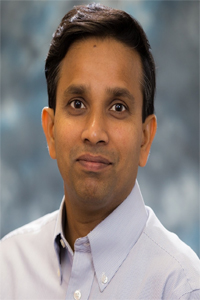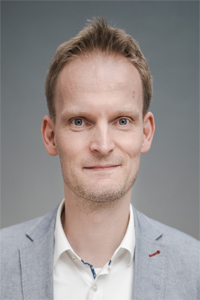Tutorial 10 | 7th Jan | 9:30AM-12:30PM (IST)
Design Automation for Quantum Computing
Speakers: Prof. Prabhat Mishra, University of Florida, Gainesville, Florida, USA and Prof. Robert Wille, Technical University of Munich, Germany
About Speakers:


Prof. Prabhat Mishra is a Professor in the Department of Computer and Information Science and Engineering and a UF Research Foundation Professor at the University of Florida. He received his Ph.D. in Computer Science from the University of California at Irvine in 2004. His research interests include embedded systems, design automation (VLSI CAD), hardware security, energy-aware computing, formal verification, system-on-chip validation, explainable AI, and quantum computing. He has published 9 books, 37 book chapters, and more than 200 research articles in premier international journals and conferences. His research has been recognized by several awards including the NSF CAREER Award, IBM Faculty Award, three best paper awards, eleven best paper nominations, and EDAA Outstanding Dissertation Award. He currently serves as an Associate Editor of ACM Transactions on Embedded Computing Systems. He is a Fellow of the Institute of Electrical and Electronics Engineers (IEEE), a Fellow of the American Association for the Advancement of Science (AAAS), and a Distinguished Scientist of the Association for Computing Machinery (ACM).
Prof. Robert Wille is a Full and Distinguished Professor at the Technical University of Munich, Germany, and Chief Scientific Officer at the Software Competence Center Hagenberg, Austria (a technology transfer company with 100 employees). He received the Diploma and Dr.-Ing. degrees in Computer Science from the University of Bremen, Germany, in 2006 and 2009, respectively. Since then, he worked at the University of Bremen, the German Research Center for Artificial Intelligence (DFKI), the University of Applied Science of Bremen, the University of Potsdam, and the Technical University Dresden. From 2015 until 2022, he was Full Professor at the Johannes Kepler University Linz, Austria, until he moved to Munich. His research interests are in the design of circuits and systems for both conventional and emerging technologies. In these areas, he published more than 400 papers and served in editorial boards as well as program committees of numerous international journals and conferences. His research has been recognized by many awards, including Best Paper Awards (e.g., at TCAD and ICCAD), an ERC Consolidator Grant, a Distinguished and a Lighthouse Professor appointment, a Google Research Award, and more.
Tutorial Abstract:
Despite technological advances, classical computers cannot efficiently solve several classes of important problems, such as optimization and logistics, quantum simulation, and data sampling. Quantum computers provide a promising alternative to solve these problems. Quantum computing uses qubits, which can exist in a superposition of zero and one states, and can utilize entanglement to perform tasks efficiently. For example, the performance of classical computers increases linearly with the number of bits (transistors). In contrast, the performance of quantum computers increases exponentially with the number of qubits. Specifically, quantum computers simultaneously transform all 2n possible states by using n entangled qubits. As a result, quantum computing may provide a promising alternative for solving certain problems that are infeasible using classical computers. Similarly, quantum communication may provide reliable security guarantees by laws of quantum mechanics and quantum memory enables storage of quantum states. In this tutorial, we plan to provide a comprehensive coverage of both fundamental concepts and recent advances in design automation for quantum computing. We will introduce the audience to the universe of quantum computing. The attendees will be able to visualize concepts from both classical and quantum perspectives. This tutorial will provide a comprehensive overview of design automation concepts in layman’s terms, including quantum compilation, quantum simulation, quantum synthesis, quantum measurement, quantum error correction, quantum machine learning, quantum noise, etc. It will also cover the state-of-the-art for design and verification of quantum circuits, and how to map them to real quantum hardware. Overall, the audience will get the full picture from quantum algorithms design to quantum computing using physical quantum hardware.


